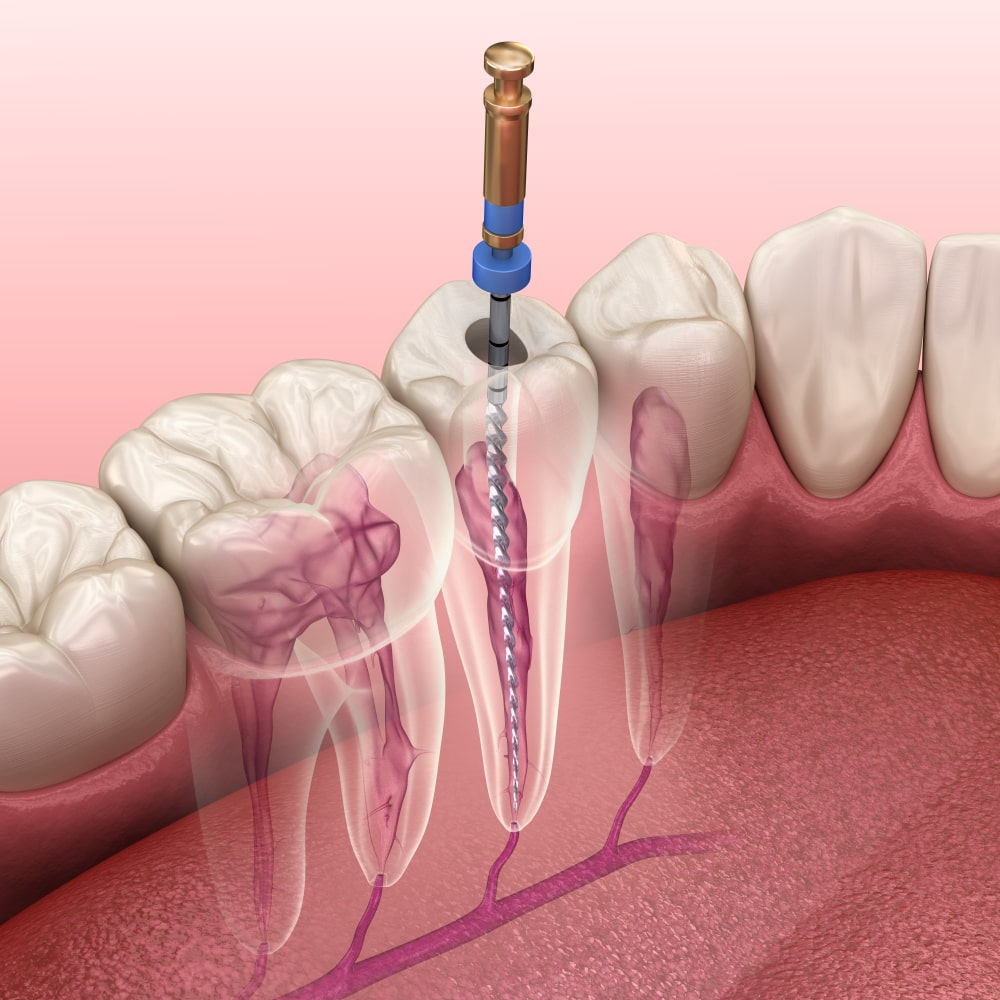Root Canal Treatment is a dental procedure that saves a tooth that is infected or severely damaged. While the thought of a root canal can be daunting, it is often the best solution to relieve pain and prevent further complications. One common question patients have regarding this treatment is: How long does Root Canal Treatment typically last? We will explore the factors that influence the longevity of a root canal, the healing process, and what to expect after the treatment is completed.
Understanding Root Canal Treatment:
Root Canal Treatment in Dubai(علاج قناة الجذر في دبي) involves the removal of infected or damaged pulp inside a tooth. This pulp consists of nerves and blood vessels, and when it becomes infected, it can lead to severe pain and the potential for tooth loss. The procedure cleans and disinfects the infected area, then fills and seals the space. Afterward, the tooth is typically restored with a crown to protect it from further damage. The goal of Root Canal Treatment is to save the tooth and maintain its functionality, allowing patients to chew, speak, and smile without issues.
Longevity of Root Canal Treatment: What You Need to Know
The question of how long a Root Canal Treatment lasts depends on several factors. Generally, with proper care, a root canal-treated tooth can last anywhere from 10 to 15 years, and in some cases, even longer. However, several elements contribute to the durability of the procedure, including the skill of the dental professional, the extent of the damage, and the patient’s commitment to oral hygiene.
Quality of the Root Canal Procedure
The quality of the treatment itself plays a major role in how long it will last. A thorough cleaning and sealing process ensures that bacteria are eliminated from the inside of the tooth, preventing reinfection. Additionally, the placement of a high-quality crown after the treatment helps protect the tooth and ensures it functions well for years to come.
Extent of Tooth Damage
The more damaged the tooth is before the procedure, the harder it may be to ensure a long-lasting result. If the tooth is severely cracked or weakened by decay, there is a higher risk of the tooth breaking or developing complications even after the root canal is completed. Teeth that have minimal damage before the treatment are likely to have better long-term outcomes.
Restoration and Protection
After a Root Canal Treatment, a crown or filling is often used to restore the tooth. This is essential for protecting the tooth from future damage and ensuring its longevity. A crown helps strengthen the tooth, preventing it from breaking under pressure. A well-fitted restoration will ensure that the tooth remains functional and protected for years.
Factors That Can Affect Root Canal Longevity:
Several factors can impact the longevity of a root canal-treated tooth. These include lifestyle habits, oral hygiene practices, and the general health of the individual. Here are some key considerations that could affect the lifespan of the procedure:
Oral Hygiene Practices:
Good oral hygiene is crucial in maintaining the longevity of any dental treatment, including Root Canal Treatment. Brushing twice a day, flossing regularly, and using mouthwash can help keep bacteria and plaque buildup at bay. Regular dental checkups also ensure that any potential issues with the treated tooth are caught early and addressed promptly.
Diet and Lifestyle Choices:
Certain lifestyle habits, such as smoking or excessive alcohol consumption, can increase the risk of tooth infections and decay. A balanced diet rich in calcium and vitamins can help maintain healthy teeth and gums, which in turn can support the longevity of a root canal-treated tooth. Avoiding excessive sugar consumption also reduces the risk of future tooth decay.
Teeth Grinding and Clenching:
If a patient has a habit of grinding or clenching their teeth, it can put extra pressure on a root canal-treated tooth, leading to potential damage or even fractures. Wearing a mouthguard during sleep can help alleviate the pressure and protect the tooth from further harm.
Signs That a Root Canal Treated Tooth Might Be in Trouble:
While a root canal-treated tooth is generally long-lasting, it is important to be aware of signs that might indicate a problem. Symptoms such as pain, swelling, or sensitivity to hot or cold could suggest that the infection has returned or that the tooth is experiencing complications. In such cases, it is essential to seek professional advice to determine whether additional treatment is needed.
Can a Root Canal Treatment Fail?
In some cases, a Root Canal Treatment may not be successful. The procedure can fail if the infection persists due to inadequate cleaning of the tooth’s interior, or if the tooth becomes re-infected due to cracks or leaks in the filling. Additionally, complications such as new infections or the development of abscesses can lead to the need for retreatment or, in some cases, extraction of the tooth. However, such instances are rare, and most patients experience successful outcomes with Root Canal Treatment.
The Role of Follow-Up Care in Long-Term Success:
Follow-up care is an important part of ensuring the long-term success of Root Canal Treatment. After the procedure, regular dental checkups allow the dentist to monitor the treated tooth for any signs of trouble. Routine X-rays may be taken to ensure that the tooth is healing properly and that no further infections have developed. If any issues are detected early, the dentist can address them before they become more serious.
Conclusion: How Long Does Root Canal Treatment Last?
Ultimately, the longevity of Root Canal Treatment varies depending on individual circumstances, but with proper care and attention, a treated tooth can last for many years. Factors such as the quality of the procedure, the extent of the tooth's damage, the type of restoration used, and the patient's overall oral health all contribute to the lifespan of the treatment. By following good oral hygiene practices, attending regular dental checkups, and protecting the tooth from damage, you can help ensure that your Root Canal Treatment provides lasting results and keeps your smile healthy for years to come.






Comments